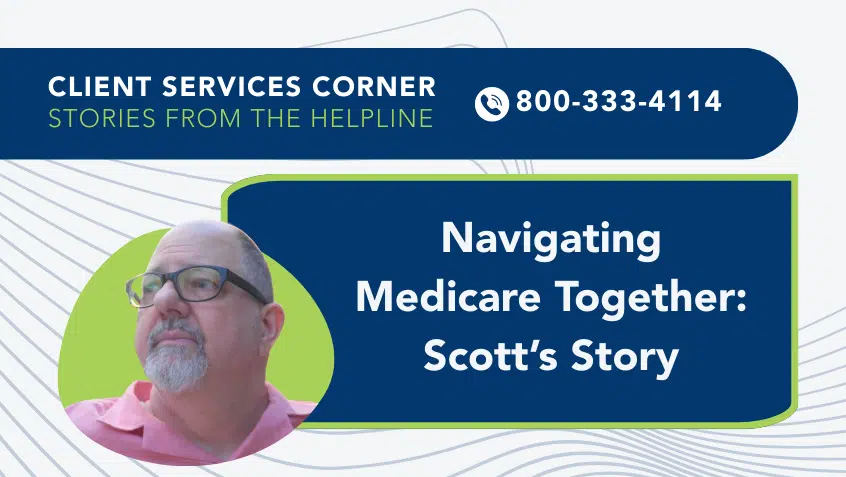Join Us Live for a Discussion on Medicare, Democracy, and the Future of Health Care
Government Watchdogs Urge Medicare Advantage Oversight and Reform

The Subcommittee on Oversight and Investigations of the House Committee on Energy and Commerce held a hearing this week on the need for greater oversight of Medicare Advantage (MA) organizations and plans. This hearing was triggered by several government watchdog reports that show MA plans delay and deny needed care, exhibit troubling patterns of disenrollment, and cost the federal government and taxpayers more than original Medicare.
Nearly 40% of people with Medicare have chosen to receive their coverage through MA, a private option that caps some out-of-pocket expenses and may offer some additional benefits but generally requires enrollees to use restricted, in-network providers to gain any of these savings.
In recent years, MA enrollment has been growing rapidly, and more and more plans have entered the market. This makes reining in problematic plan behaviors and updating government policies increasingly important.
During the hearing, representatives of the Health and Human Services Office of the Inspector General (OIG), Government Accountability Office (GAO), and Medicare Payment Advisory Commission (MedPAC) all testified about troubling issues their watchdog organizations have seen.
The OIG representative flagged improper MA denial of services and payment, which could lead to MA enrollees losing access to needed care. A recent OIG report estimates that tens of thousands of MA enrollees face inappropriate denials each year, some due to plans creating paperwork or coverage barriers that are not supported either by Medicare rules or medical best practice.
The GAO representative focused on trends in MA disenrollment and the need for audits to recoup improper payments. A 2021 GAO report showed that beneficiaries in the last year of life disenrolled from MA at a higher rate, potentially demonstrating that these individuals have problems accessing care as their needs increase. This mirrors a 2017 GAO report that showed similar disenrollment patterns among people in poor health.
The MedPAC representative pointed to troublesome MA overpayments. Rather than saving programmatic and taxpayer dollars, MedPAC has shown that “Private plans have never yielded aggregate savings to Medicare.” These additional expenses are significant, and well documented. According to a 2017 study, one of the key drivers of the unacceptably high payments—plan abuses of patient categorization rules, known as “upcoding”—could raise Medicare expenditures by $200 billion over the next decade. Another report found that Medicare overpaid MA plans by $70 billion from 2008 through 2013, and the GAO estimates that in 2013 alone, Medicare Advantage plans received an extra $14.1 billion.
The government watchdog representatives agreed that more must be done by Congress and the Administration to control MA plan practices, offering suggestions like limiting plan ability to recoup higher reimbursement by claiming enrollees are sicker than they are, conducting greater oversight of prior authorization and other barriers to care, changing the way MA payments are structured, and beefing up data and audit requirements to better protect beneficiaries and identify plan overpayments.
At Medicare Rights, we applaud this hearing and urge policymakers to move forward with these and other recommendations. As our recent Helpline Trends report showed, these MA access and affordability issues remain widespread, and continue to impact far too many. More must be done to ensure that MA plans are conducting themselves appropriately, and that enrollees are getting the care they need at a reasonable cost to themselves, the taxpayers, and the Medicare program.
Watch the hearing and read the watchdog testimony.
Read more about the OIG report on denials of care.
Read more about the GAO report on beneficiary disenrollment.
Read more about the MedPAC report on MA overpayment and quality.
Show Comments
We welcome thoughtful, respectful discussion on our website. To maintain a safe and constructive environment, comments that include profanity or violent, threatening language will be hidden. We may ban commentors who repeatedly cross these guidelines.
Help Us Protect & Strengthen Medicare
Donate today and make a lasting impact
More than 67 million people rely on Medicare—but many still face barriers to the care they need. With your support, we provide free, unbiased help to people navigating Medicare and work across the country with federal and state advocates to protect Medicare’s future and address the needs of those it serves.
The Latest
Most Read
Add Medicare to Your Inbox
Sign up to receive Medicare news, policy developments, and other useful updates from the Medicare Rights.
View this profile on InstagramMedicare Rights Center (@medicarerights) • Instagram photos and videos









